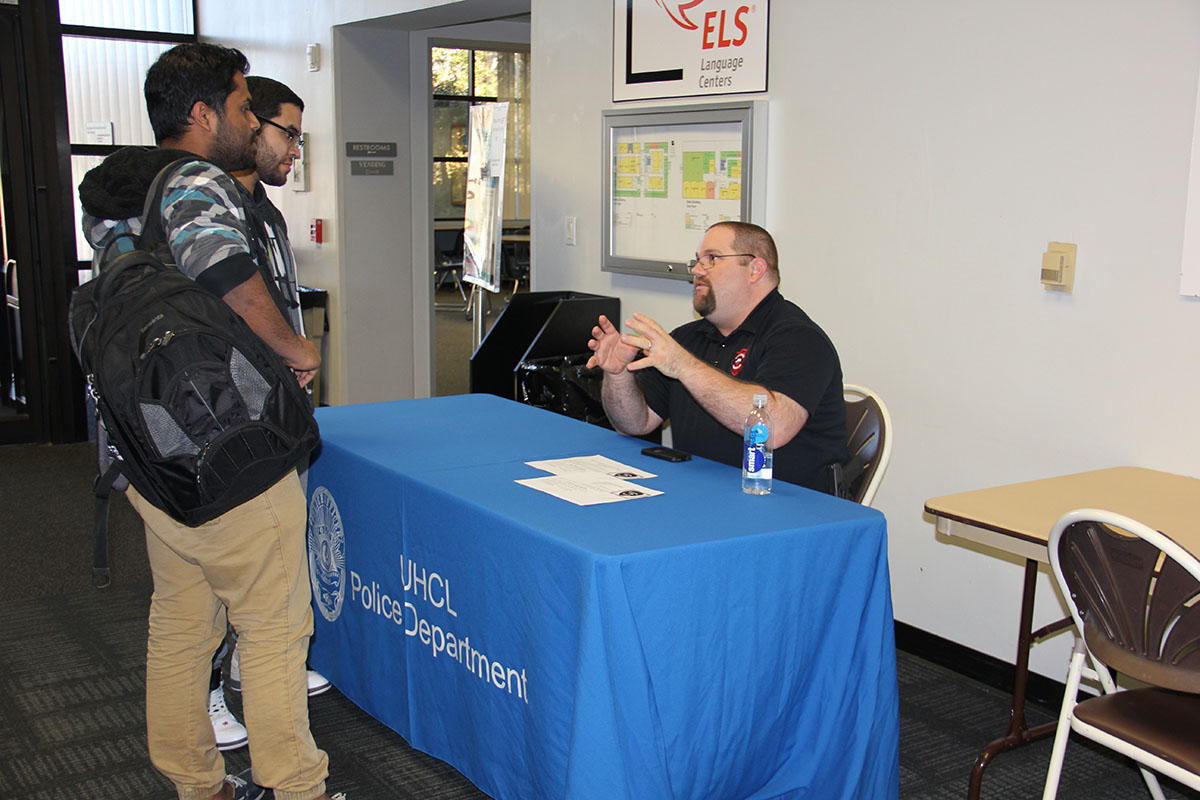
Police educating community on new crime trend

The UHCL Police Department held weeklong preventive training sessions Feb. 9-18 to discuss “jugging,” the latest local crime trend.
Chief of Police Paul Willingham explained jugging as a different kind of theft. Criminals stake out an area that they know someone is going to withdraw money from, such as an ATM, and then follow the person to a more convenient locale, preferably one where the person is likely to leave the money in their car. When that happens, juggers break into the car.
Jugging is different from traditional mugging because it attempts to eliminate the physical confrontation; the primary point is to wait until the target has left the car and not to assail the individual.
“You stand a higher risk when you assail a person because you don’t know if they’re armed or anything like that,” Willingham said. “Also a big difference between jugging and a typical robbery is the element of the person, because jugging is not a formal criminal statute; that’s just a nickname for an activity, a nickname for a general motif of which the criminal commits car burglary or robbery.”
Local incidents of jugging that have occurred in the greater Houston area include Bellaire, Gulf Freeway near 610, Pasadena, Deer Park and Clear Lake.
Juggers usually operate by sitting in bank parking lots while watching possible targets go in and out of the building. Juggers look for targets who leave the bank carrying cash envelopes or money bags in hand. The suspects then follow a target to an advantageous location where the car is either broken into or the suspect accosts the target, turning the “jugging” into a mugging.
At the training sessions, students learned how juggers operate and how one can protect themselves from the crime.
“The email about the session and wanting more information about the crime drove me to come to the training session,” said School of Education Professor Marlene Morgan. “I’m glad they sent the email because I did not know this existed until I saw the email.”
Morgan said she does feel safer after attending the training session.
“I love getting information, and I love knowing what to do now,” Morgan said.
Sgt. Jared Goldman, instructor of one of the training sessions, provided the following safety tips on how to avoid being a target:
- be cautious of your surroundings
- keep an eye out for people watching
- be discreet when you make a withdrawal
Goldman also explained what to do if someone is targeted:
- grab your cell phone, dial 911 and say I’m being followed
- make three right turns to confirm if you are being followed – Goldman said he doesn’t recommend this trick because you might be in an area you don’t know very well and you might end up in a dead end.
“Jugging, the activity, has been around in Clear Lake for a long time, but it has recently picked up steam and more recognition from mainstream media in the last 3-4 months.” Willingham said, “The biggest arrest that has been made so far was in Dallas, but the assailants, a group of 23, were from Houston, so you can do the logic that they have committed the crime here in Houston.”
“There is not a specific demographic that is a higher target, it’s just a matter of target acquisition based upon what they feel will be their biggest reward,” Willingham said. “There hasn’t really been a connection on anyone being harmed or injured, the majority of the cases tend to be non-people involved, just property gets stolen, that’s typically the case.”
Students are encouraged to call 911 immediately anytime they are worried about being followed or feel unsafe, whether on or off campus. If still on campus, students can call the UHCL police department at 281-283-2222.
“Anytime you’re dealing with money, anytime you’re in those types of higher risk activities you should always be on your highest alert,” Willingham said.

Always great to be safe than sorry.
Thanks for the eye opener Raj! Good job!